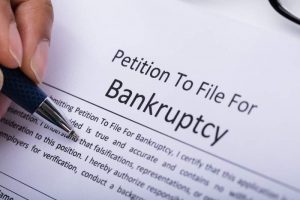Page Contents
What Actually Happens When You File For Bankruptcy?
What happens if you are unable to pay your debts? You might have ended up in debt bondage once upon a time, such as in ancient Greece. To be a debt slave, you and your family had to work for the person you owed money to in order to pay off your debt. This differs from slavery in that you were released after your obligation was paid. The poor were imprisoned to dreadful debtors’ prisons later in history, such as in Victorian England, and were only released when their debt was paid in full by friends or family. Other debtors’ jails were comparable to workhouses, where a debtor had to labor off not just their debt, but also their room and board in order to be released.
What Is Bankruptcy Law?
 Many countries now practice some sort of bankruptcy, which relieves debtors of their obligations and allows them to start over financially. That isn’t to suggest that dubious debt practices don’t occur; debt bondage is still used in various parts of the world, such as South Asia and Sub-Saharan Africa. According to the United Nations, 8 million people are exploited in bonded labor. Many organizations, thankfully, are fighting to better people’s lives and rescue them from what the UN calls “modern-day slavery.”
Many countries now practice some sort of bankruptcy, which relieves debtors of their obligations and allows them to start over financially. That isn’t to suggest that dubious debt practices don’t occur; debt bondage is still used in various parts of the world, such as South Asia and Sub-Saharan Africa. According to the United Nations, 8 million people are exploited in bonded labor. Many organizations, thankfully, are fighting to better people’s lives and rescue them from what the UN calls “modern-day slavery.”
In the United States, there are six different categories of bankruptcy. Chapter 7, Chapter 9, Chapter 11, Chapter 12, Chapter 13, and Chapter 15 are the sections of the Bankruptcy Code under which they are located. Each Chapter deals with a particular sort of bankruptcy; for example, Chapter 9 deals with municipal bankruptcy, such as that of towns or cities.
Considerations When Hiring a Bankruptcy Lawyer
Although most lawyers are free to apply for authorization to practice in the United States Bankruptcy Court, effectively representing bankruptcy clients requires a thorough understanding of the United States Bankruptcy Code. Attorneys who lack the necessary experience may not be aware of all of the options accessible to a client facing bankruptcy, and so may be unable to negotiate the most beneficial bankruptcy plans.
Bankruptcy proceedings can have both positive and negative long-term effects on a person’s financial and family circumstances. Another advantage of hiring an experienced lawyer due to this. A lawyer who has assisted many clients with bankruptcy can help you better prepare, preserve your assets, and limit the negative consequences.
